Governance and Finance
Corporate governance today is about more than just making profits for shareholders. It now aims to balance the needs of all stakeholders-employees, investors, creditors, and business partners. Good governance helps companies run better, attract talent, gain customer trust, and lower financial costs. Conversely, poor governance can lead to scandals, job losses, and broken contracts.
The “Governance and Finance” research group studies how governance works in modern financial markets. One of the focuses is on how firms choose, motivate, and keep talented leaders, especially CEOs, since exemplary leadership is key to company success.
The group is also interested in investigating how changes in financial markets, like the rise of big shareholders, activist investors, or even creditors, affect company decisions. The goal is to understand how different players and institutions influence company behavior and what that means for the future of business.
Research Cluster
Financial Resilience and RegulationYour contact

- Department Financial Markets
Refereed Publications

Corporate Social Responsibility and Profit Shifting
in: European Accounting Review, No. 1, 2025
Abstract
This paper examines the relation between corporate social responsibility (CSR) performance and tax–motivated income shifting. Using a profit–shifting measure estimated from multinational enterprises (MNEs) data, we find that parent firms with higher CSR scores shift significantly more profits to their low-tax foreign subsidiaries. Overall, our evidence suggests that MNEs engaging in CSR activities acquire legitimacy and moral capital that temper negative responses by stakeholders and thus have greater scope and chance to engage in unethical profit-shifting activities, consistent with the legitimacy theory.
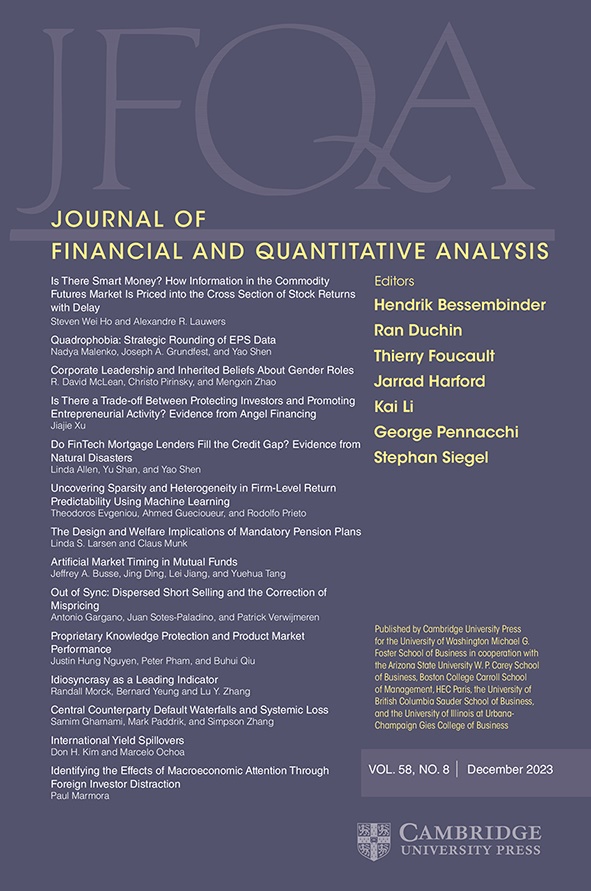
The Effects of Antitrust Laws on Horizontal Mergers: International Evidence
in: Journal of Financial and Quantitative Analysis, No. 7, 2024
Abstract
This study examines how antitrust law adoptions affect horizontal merger and acquisition (M&A) outcomes. Using the staggered introduction of competition laws in 20 countries, we find antitrust regulation decreases acquirers’ five-day cumulative abnormal returns surrounding horizontal merger announcements. A decrease in deal value, target book assets, and industry peers' announcement returns are consistent with the market power hypothesis. Exploiting antitrust law adoptions addresses a downward bias to an estimated effect of antitrust enforcement (Baker (2003)). The potential bias from heterogeneous treatment effects does not nullify our results. Overall, antitrust policies seem to deter post-merger monopolistic gains, potentially improving customer welfare.
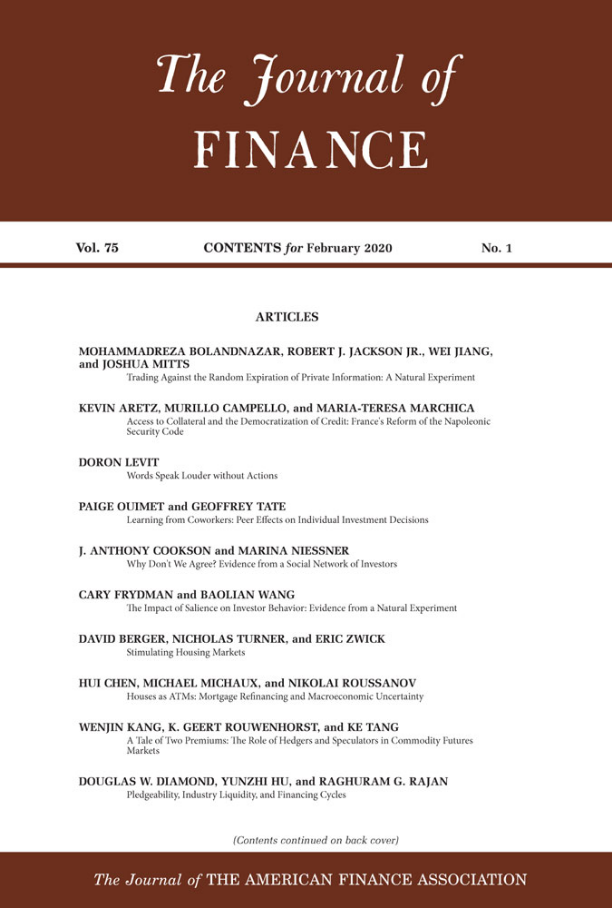
Non-Standard Errors
in: Journal of Finance, No. 3, 2024
Abstract
In statistics, samples are drawn from a population in a datagenerating process (DGP). Standard errors measure the uncertainty in sample estimates of population parameters. In science, evidence is generated to test hypotheses in an evidencegenerating process (EGP). We claim that EGP variation across researchers adds uncertainty: non-standard errors. To study them, we let 164 teams test six hypotheses on the same sample. We find that non-standard errors are sizeable, on par with standard errors. Their size (i) co-varies only weakly with team merits, reproducibility, or peer rating, (ii) declines significantly after peer-feedback, and (iii) is underestimated by participants.
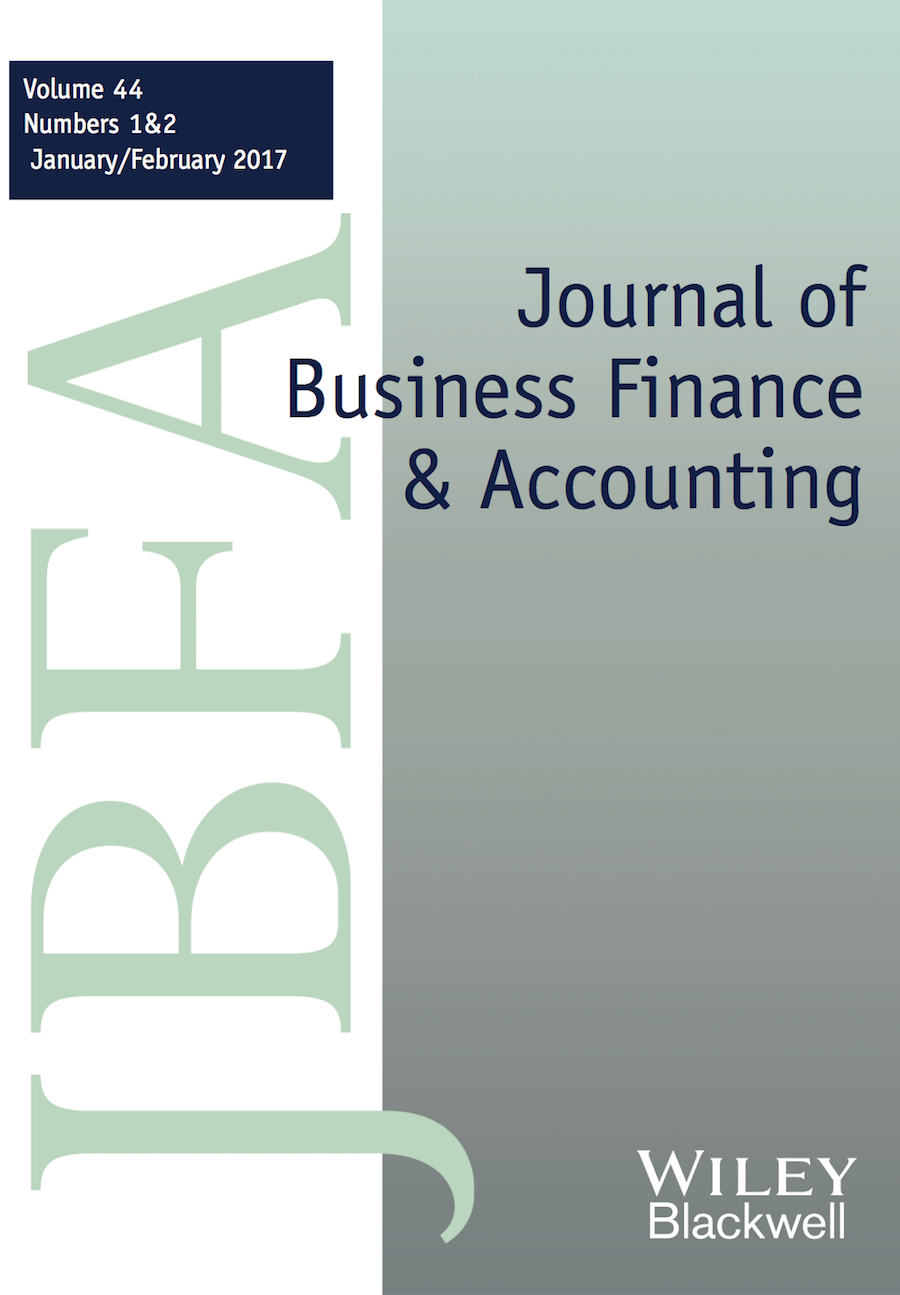
Disentangling Stock Return Synchronicity From the Auditor's Perspective
in: Journal of Business Finance and Accounting, No. 5, 2024
Abstract
<p>This paper investigates a firm's stock return asynchronicity through the auditor's perspective to distinguish whether this asynchronicity can proxy for the company's firm-specific information or the quality of its information environment. We find a significant and positive association between asynchronicity and audit fees after controlling for auditor quality and other factors that affect audit fees, suggesting that stock return asynchronicity is more likely to capture a company's firm-specific information than its information environment. We also find that asynchronous firms are more likely to receive adverse opinions on their internal controls over financial reporting, but are associated with lower costs of capital and auditor litigation, providing further evidence in support of the firm-specific information argument. Asynchronicity's positive association with audit fees is driven by firms with higher accounting reporting complexity, suggesting stock return asynchronicity captures a firm's complexity, resulting in more significant efforts by the auditor.</p>

Regulation and Information Costs of Sovereign Distress: Evidence from Corporate Lending Markets
in: Journal of Corporate Finance, October 2023
Abstract
We examine the effect of sovereign credit impairments on the pricing of syndicated loans following rating downgrades in the borrowing firms' countries of domicile. We find that the sovereign ceiling policies used by credit rating agencies create a disproportionately adverse impact on the bounded firms' borrowing costs relative to other domestic firms following their sovereign's rating downgrade. Rating-based regulatory frictions partially explain our results. On the supply-side, loans carry a higher spread when granted from low-capital banks, non-bank lenders, and banks with high market power. We further document an operating demand-side channel, contingent on borrowers' size, financial constraints, and global diversification. Our results can be attributed to the relative bargaining power between lenders and borrowers: relationship borrowers and non-bank dependent borrowers with alternative financing sources are much less affected.
Working Papers
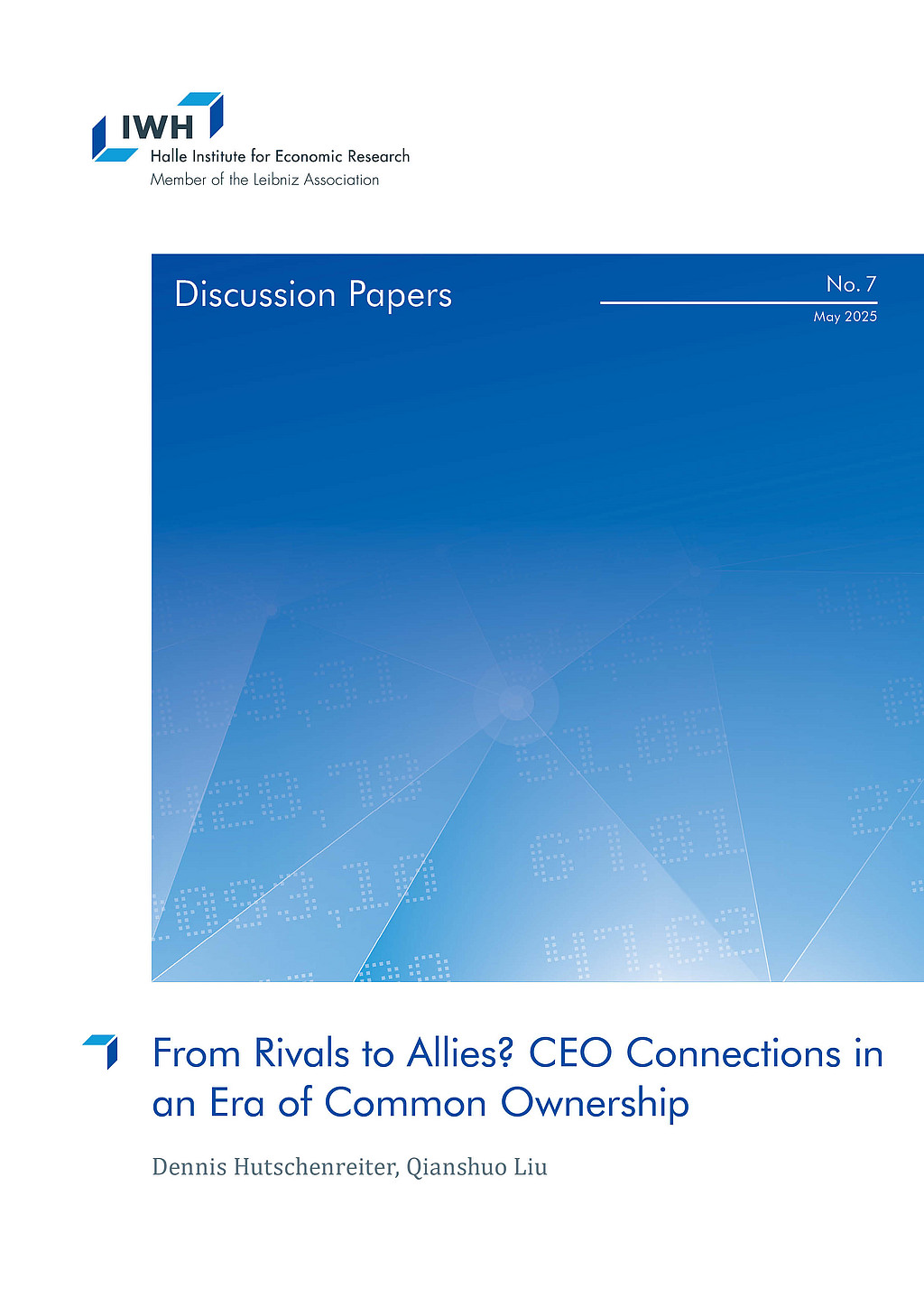
From Rivals to Allies? CEO Connections in an Era of Common Ownership
in: IWH Discussion Papers, No. 7, 2025
Abstract
<p>Institutional common ownership of firm pairs in the same industry increases the likelihood of a preexisting social connection among their CEOs. We establish this relationship using a quasi-natural experiment that exploits institutional mergers combined with firms’ hiring events and detailed information on CEO biographies. In addition, for peer firms, gaining a CEO connection from a hiring firm’s CEO appointment correlates with higher returns on assets, stock market returns, and decreasing product similarity between companies. We find evidence consistent with common owners allocating CEO connections to shape managerial decisionmaking and increase portfolio firms’ performance.</p>
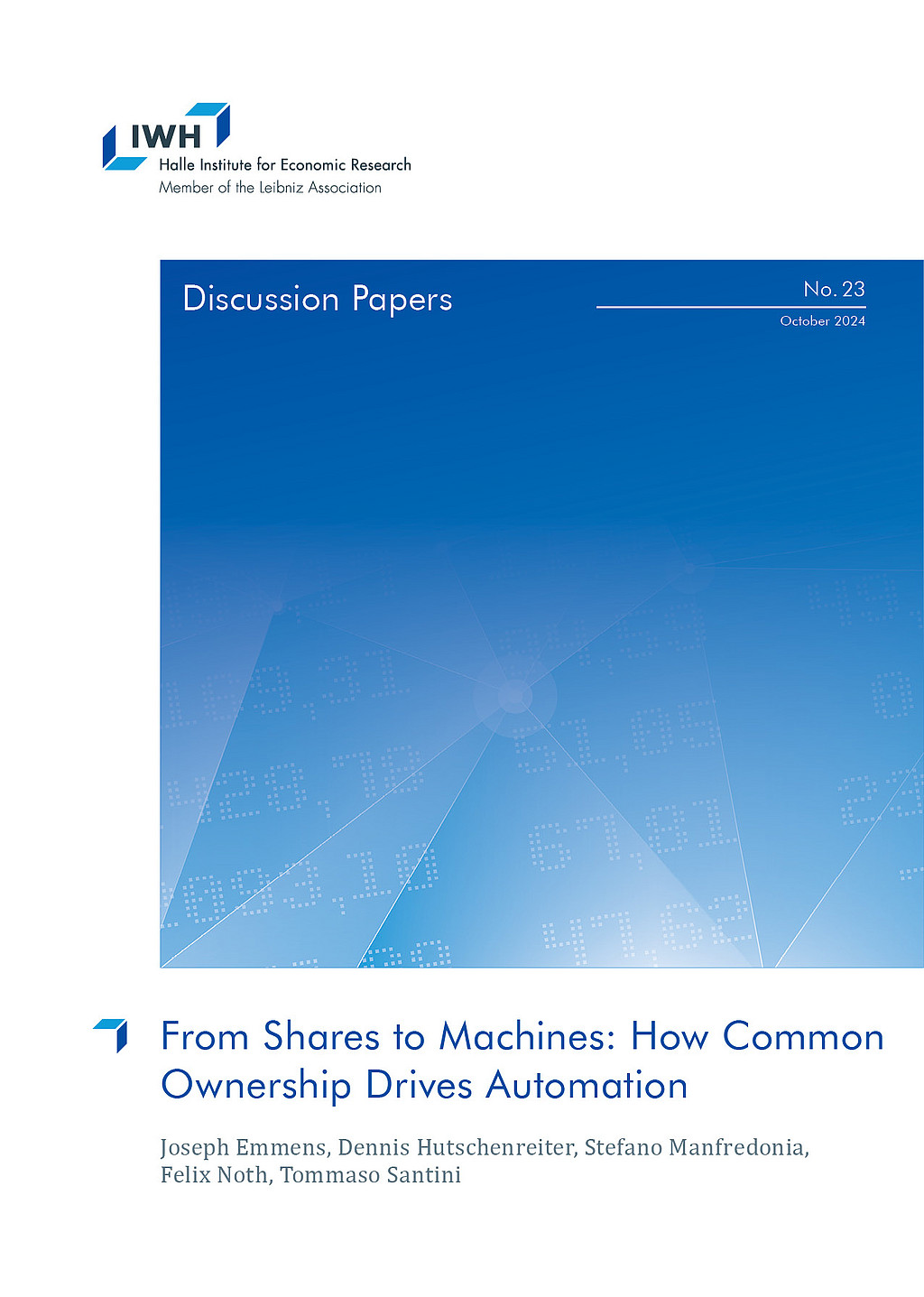
From Shares to Machines: How Common Ownership Drives Automation
in: IWH Discussion Papers, No. 23, 2024
read publication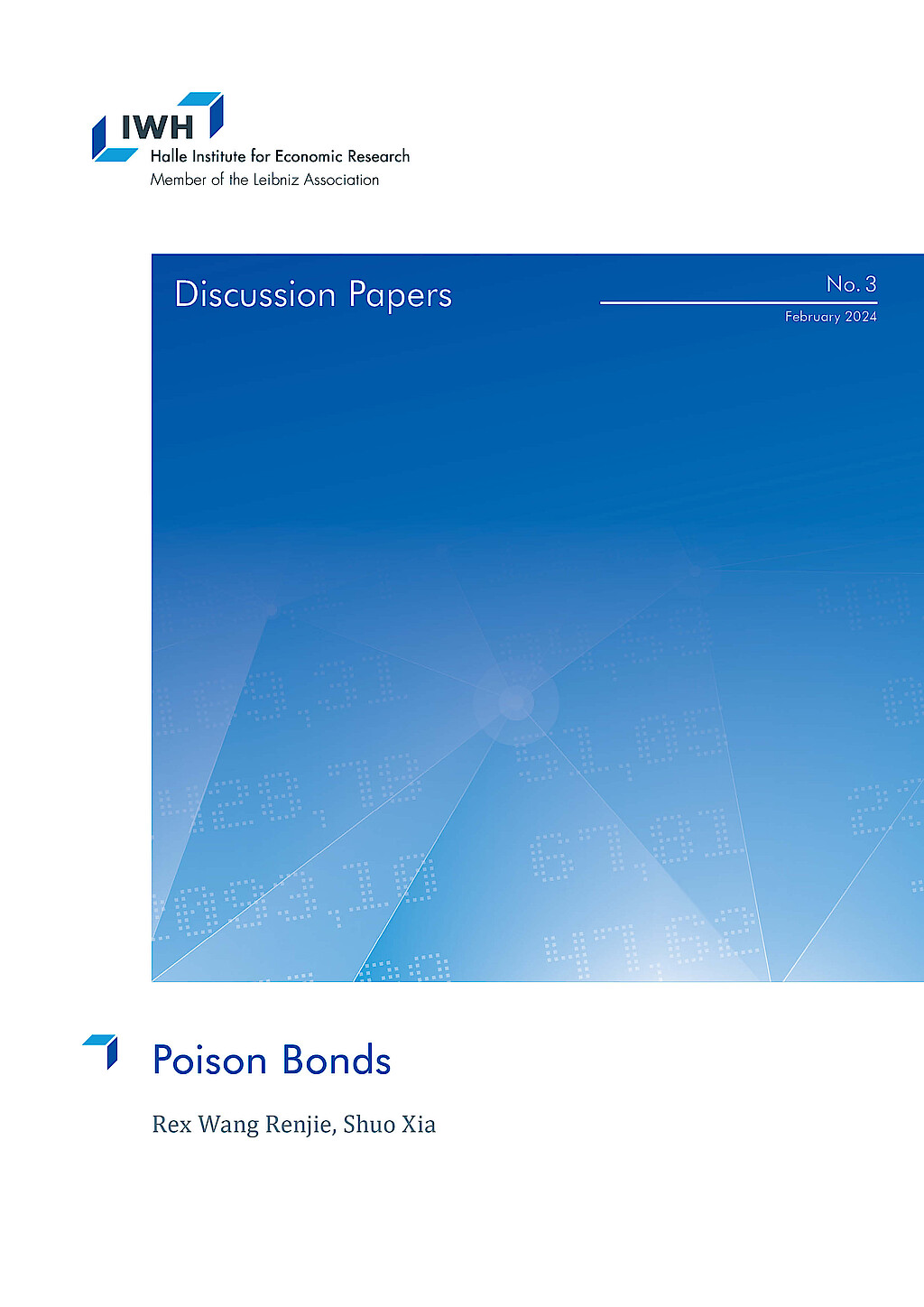
Poison Bonds
in: IWH Discussion Papers, No. 3, 2024
Abstract
This paper documents the rise of “poison bonds”, which are corporate bonds that allow bondholders to demand immediate repayment in a change-of-control event. The share of poison bonds among new issues has grown substantially in recent years, from below 20% in the 90s to over 60% since mid-2000s. This increase is predominantly driven by investment-grade issues. We provide causal evidence that the pressure to eliminate poison pills has led firms to issue poison bonds as an alternative. Our analysis suggests that this practice entrenches incumbent managers and destroys shareholder value. Holding a portfolio of firms that remove poison pills but promptly issue poison bonds results in negative abnormal returns of −7.3% per year. Our findings have important implications for the agency theory of debt: (i) more debt may not discipline the management; and (ii) even without financial distress, managerial entrenchment can lead to agency conflicts between shareholders and creditors.
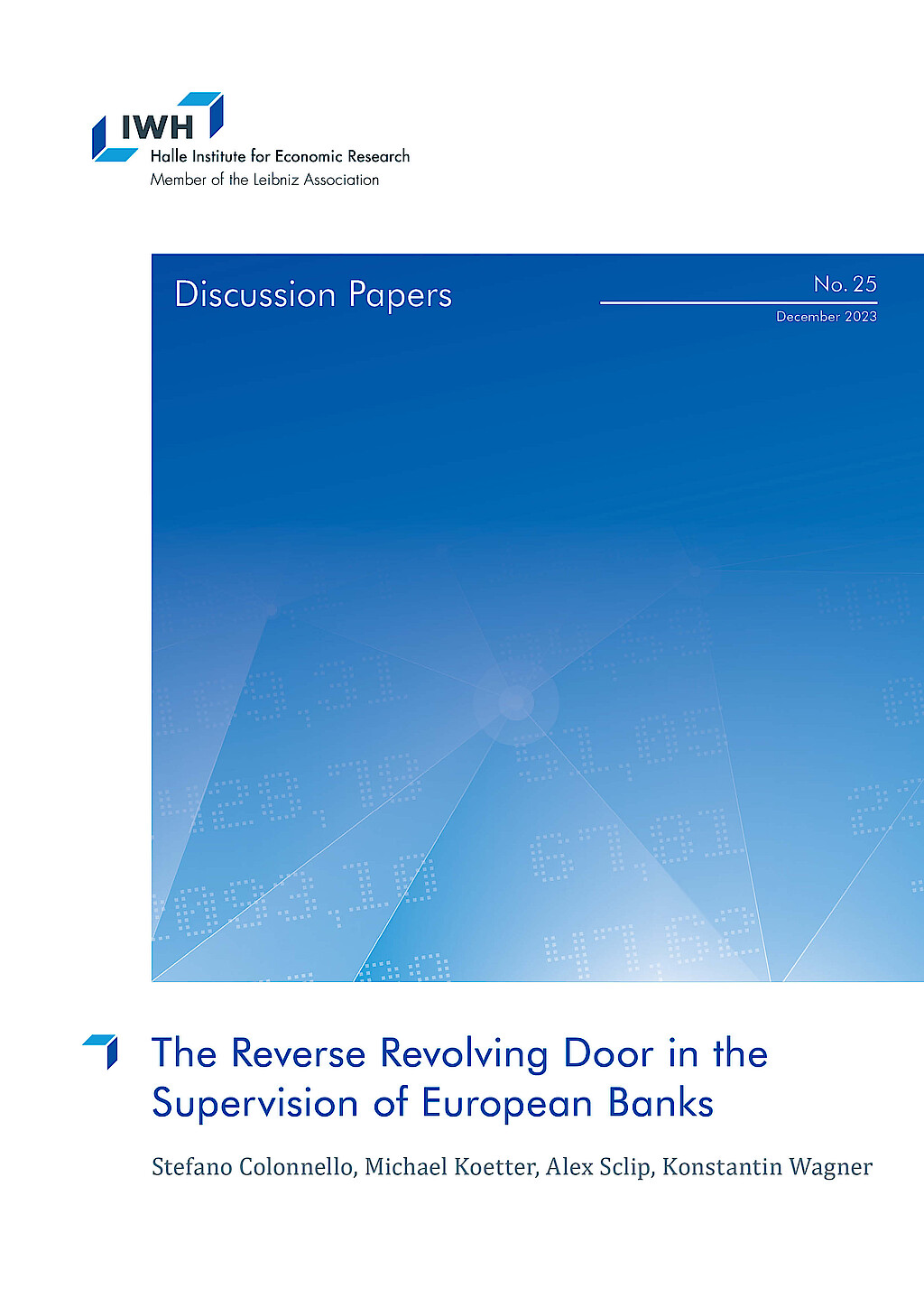
The Reverse Revolving Door in the Supervision of European Banks
in: IWH Discussion Papers, No. 25, 2023
Abstract
We show that around one third of executive directors on the boards of national supervisory authorities (NSA) in European banking have an employment history in the financial industry. The appointment of executives without a finance background associates with negative valuation effects. Appointments of former bankers, in turn, spark positive stock market reactions. This „proximity premium“ of supervised banks is a more likely driver of positive valuation effects than superior financial expertise or intrinsic skills of former executives from the financial industry. Prior to the inception of the European Single Supervisory Mechanism, the presence of former financial industry executives on the board of NSA associates with lower regulatory capital and faster growth of banks, pointing to a more lenient supervisory style.
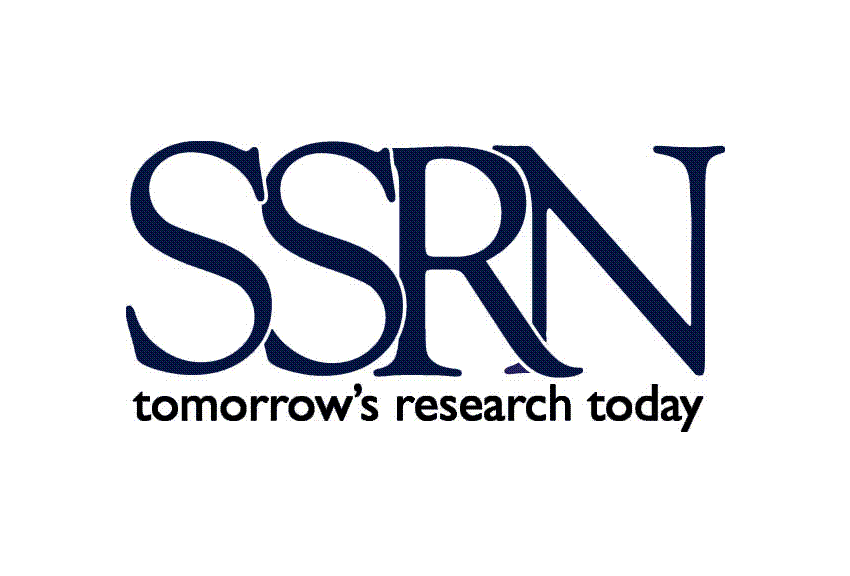
Poison Bonds
in: SSRN Discussion Paper, 2023
Abstract
This paper documents the rise of "poison bonds", which are corporate bonds that allow bondholders to demand immediate repayment in a change-of-control event. The share of poison bonds among new issues has grown substantially in recent years, from below 20% in the 90s to over 60% after 2005. This increase is predominantly driven by investment-grade issues. We provide causal evidence that the pressure to eliminate poison pills has led firms to issue poison bonds as an alternative. Further analyses suggest that this practice entrenches incumbent managers, coincidentally benefits bondholders, but destroys shareholder value. Holding a portfolio of firms that remove poison pills but promptly issue poison bonds results in negative abnormal returns of -7.3% per year. Our findings have important implications for understanding the agency benefits and costs of debt: (1) more debt does not necessarily discipline the management; and (2) even without financial distress, managerial entrenchment can lead to conflicts between shareholders and creditors.










